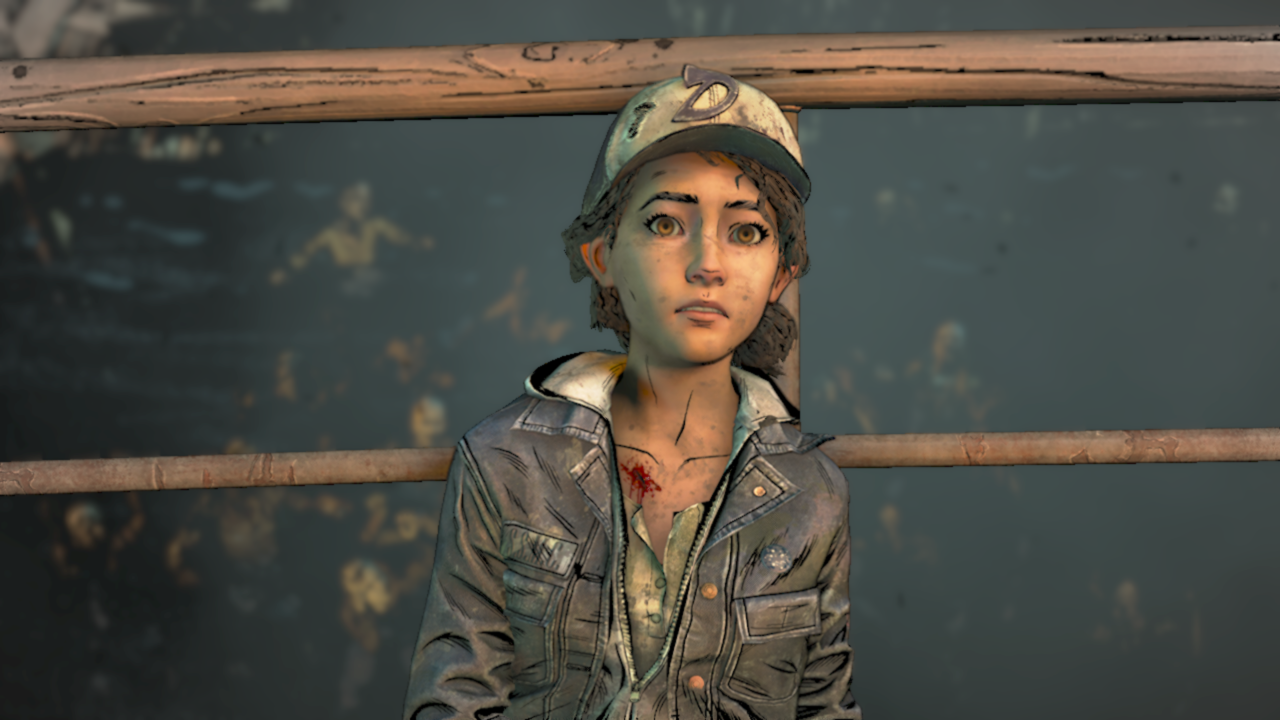(Editor's note: This review contains spoilers for Episode 3.) About 20 minutes into Take Us Back, the finality of it all truly starts to sink in. This is the last chance we get to ensure Clementine is going to be okay. These are the last lessons we teach A.J. This is the last ever episode of The Walking Dead. So, it's rather appropriate that Take Us Back is very much about legacy, about taking everything Clementine's learned--and you along with her--and wrapping it all up in a bow.
It's not nearly as clean cut as that; it is The Walking Dead, of course, and the night gets plenty dark before the dawn. After Clem gets her bearings, and you get to decide what to do with Lilly, it's a rather breathless race to keep ahead of the horde of walkers the Ericson kids have brought down on the immediate area. They're everywhere, and in a particularly hostile mood after Lilly's trigger-happy goons draw their attention. On top of that, weaponry is in short supply, which means there's much more avoidance than shooting this time around. For what it's worth, the shooting is simplified in this episode, with bow-and-arrow moments made much more forgiving and impactful than before.

That said, the episode starts out as another rowdy QTE festival. But the real meat of it begins about a third of the way in, when Clementine makes the fateful decision of whether or not to trust A.J. as his own person, able to make tough decisions on his own. Here, more than Walking Dead has ever done, the decisions of the entire season bear fruit. A.J. will automatically make two of the biggest choices of the season--arguably, the series--based on your teachings. It's a fascinating narrative decision. Much of the climax here is out of your hands in all but the most basic mechanical sense, but in its own way, you've been deciding how this will play out for the entire series. No matter what, you're going to have to live with the fact that these are the logical consequences of your actions. This is your legacy, and even if A.J. makes what you might consider the right choices, in true Walking Dead fashion, none of them are pretty.
The one notable issue with letting the episode play out this way is that the weight of A.J.'s decisions overshadow quite a few of the smaller threads set up by previous episodes. Arguably, Episode 3's party was meant to cement Ericson and the kids therein as a legitimate home and family. But while getting back to Ericson is ultimately the end goal of the episode, Episode 4 is too breathless and urgent to slow down and explore the particulars of what home will look like until it's all said and done.
It's possible that's the point, though. As mentioned before, there is a finality to this episode, and without delving too far into spoilers, the ending is far less about the home of the present than about painting a detailed portrait of its future and what kind of people will be shaping it going forward. That portrait is one of contrasts, of things we've never seen before in this series up to this point--really, in any moving version of The Walking Dead--and yet are so simple we've taken them for granted. It's an understated ending, for sure, until you consider just how much chaos and distrust and dysfunction have defined this series. There is nothing more impactful than understatement as far as this universe is concerned.

We know what kind of legacy Clementine and you, the player, leave on A.J., but if there's any comment on what Telltale's legacy looks like, it's in the finale as well, in a stretch where you have control of A.J. instead of Clementine. Here, the trademark Telltale UI has changed, no longer that distinctive up-down-left-right grid of responses, but a floating collection of potential thoughts or emotions to have. It looks a little like the crucial time-stopping decision clouds of Life Is Strange. It acts a little like the emotion-based response system of Mass Effect Andromeda. It feels like a statement by a group of developers whose legacy is now safe and sound. It's rare that a shuttered studio gets to dictate the final grace notes of their body of work, but that's the opportunity Telltale had with these final episodes, and it's one that was not wasted in any way. The Walking Dead ends not with a bang, but an accomplished sigh.




